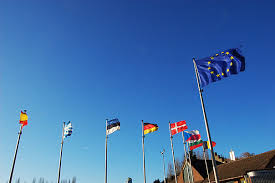EU urged to review remdesivir supply deal after COVID trial results
Gilead did not comment on whether remdesivir's price for wealthy countries could change after the WHO trial, and the company questioned its results. "As time is of the essence – we are in a situation of a public health emergency - we have to not only invest up-front in vaccine development but also in access to therapeutics," a spokesman for the European Commission said.
Reuters | Updated: 16-10-2020 20:31 IST | Created: 16-10-2020 20:28 IST
The European Union should renegotiate a 1 billion euro ($1.17 billion) contract it sealed last week with Gilead for a six-month supply of the COVID-19 drug remdesivir after it showed poor results in a large trial, experts said on Friday.
In a blow to one of the few drugs being used to treat people with COVID-19, the Solidarity Trial conducted by the World Health Organization showed on Friday that remdesivir appeared to have little or no effect on mortality or length of hospital stays among patients with the respiratory disease. The trial results were disclosed a week after the EU's executive Commission announced its largest contract to date with Gilead for the supply of 500,000 courses of the antiviral drug at a price of 2,070 euro per treatment, which Gilead said was the standard for wealthy nations.
The Commission "needs to present the reasons behind the rush to conclude the latest contract with Gilead and move to review it in light of the Solidarity Trial findings," said Yannis Natzis, who represents patients' organisations on the board of the European Medicine Agency (EMA), the EU drug regulator. The EU announced on Oct. 8 that it had signed the supply contract with the U.S. company on behalf of its 27 member states and 10 partner countries, including Britain.
Gilead had known about the results of Solidarity since Oct. 6, the WHO said, citing disclosure rules under the Solidarity Trial. Gilead told Reuters it had received in late September a "heavily redacted manuscript" from the WHO which contained different information from the final document published on Friday.
"TIME IS OF THE ESSENCE"
The Commission's decision was made after EU countries warned of shortages of remdesivir in their hospitals amid a new surge of COVID-19 infections across Europe.
The contract does not oblige countries to buy remdesivir, although it ties them to the agreed price. Gilead did not comment on whether remdesivir's price for wealthy countries could change after the WHO trial, and the company questioned its results.
"As time is of the essence – we are in a situation of a public health emergency - we have to not only invest up-front in vaccine development but also in access to therapeutics," a spokesman for the European Commission said. He added the EMA would look into the Solidarity results and data available from other studies on COVID treatments "to see if any changes are needed to the way these medicines are used".
But the spokesman did not comment on whether the EU was aware of the Solidarity results before it signed the contract with Gilead. He also did not reply to questions on whether the price agreed with Gilead could be renegotiated. "The EU should revisit the prices to be paid for Remdesivir. Why to pay 1 billion euros for a drug with no effects on survival?" said Andrew Hill, a senior visiting research fellow in the Department of Pharmacology at the University of Liverpool.
He said generic versions of the drug manufactured in India were sold at 200 euros per course. ($1 = 0.8525 euros)
- READ MORE ON:
- Remdesivir
